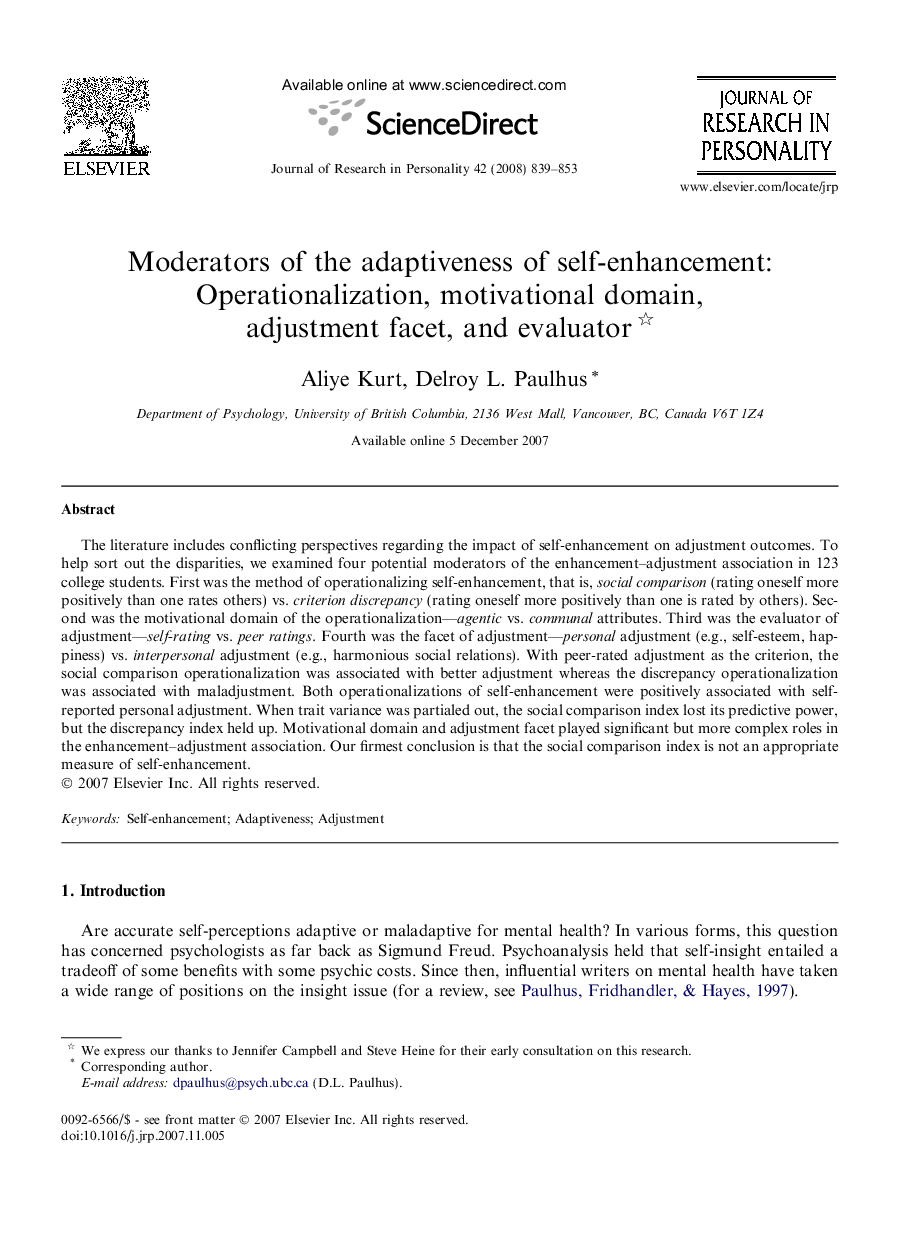| Article ID | Journal | Published Year | Pages | File Type |
|---|---|---|---|---|
| 951604 | Journal of Research in Personality | 2008 | 15 Pages |
The literature includes conflicting perspectives regarding the impact of self-enhancement on adjustment outcomes. To help sort out the disparities, we examined four potential moderators of the enhancement–adjustment association in 123 college students. First was the method of operationalizing self-enhancement, that is, social comparison (rating oneself more positively than one rates others) vs. criterion discrepancy (rating oneself more positively than one is rated by others). Second was the motivational domain of the operationalization—agentic vs. communal attributes. Third was the evaluator of adjustment—self-rating vs. peer ratings. Fourth was the facet of adjustment—personal adjustment (e.g., self-esteem, happiness) vs. interpersonal adjustment (e.g., harmonious social relations). With peer-rated adjustment as the criterion, the social comparison operationalization was associated with better adjustment whereas the discrepancy operationalization was associated with maladjustment. Both operationalizations of self-enhancement were positively associated with self-reported personal adjustment. When trait variance was partialed out, the social comparison index lost its predictive power, but the discrepancy index held up. Motivational domain and adjustment facet played significant but more complex roles in the enhancement–adjustment association. Our firmest conclusion is that the social comparison index is not an appropriate measure of self-enhancement.
